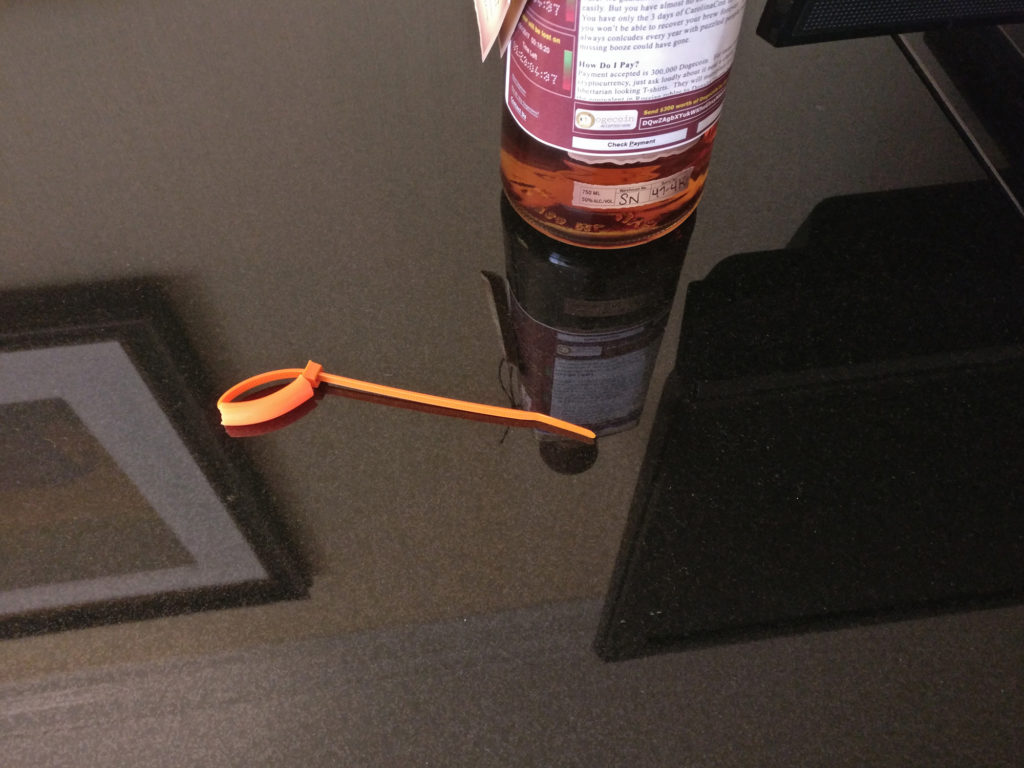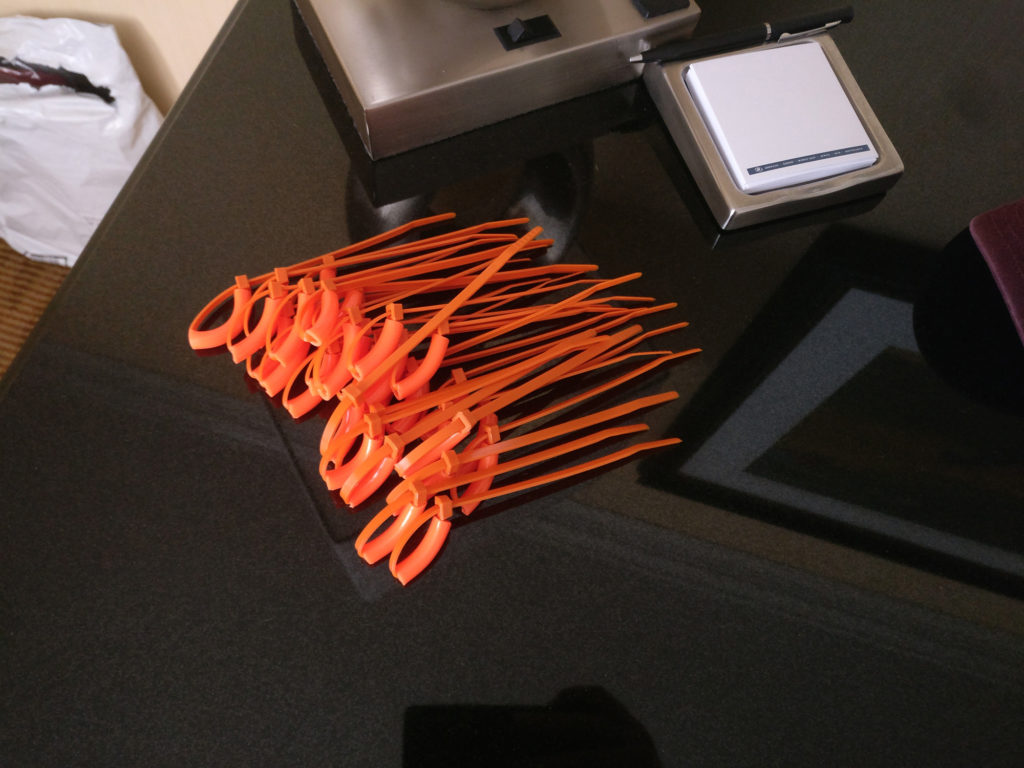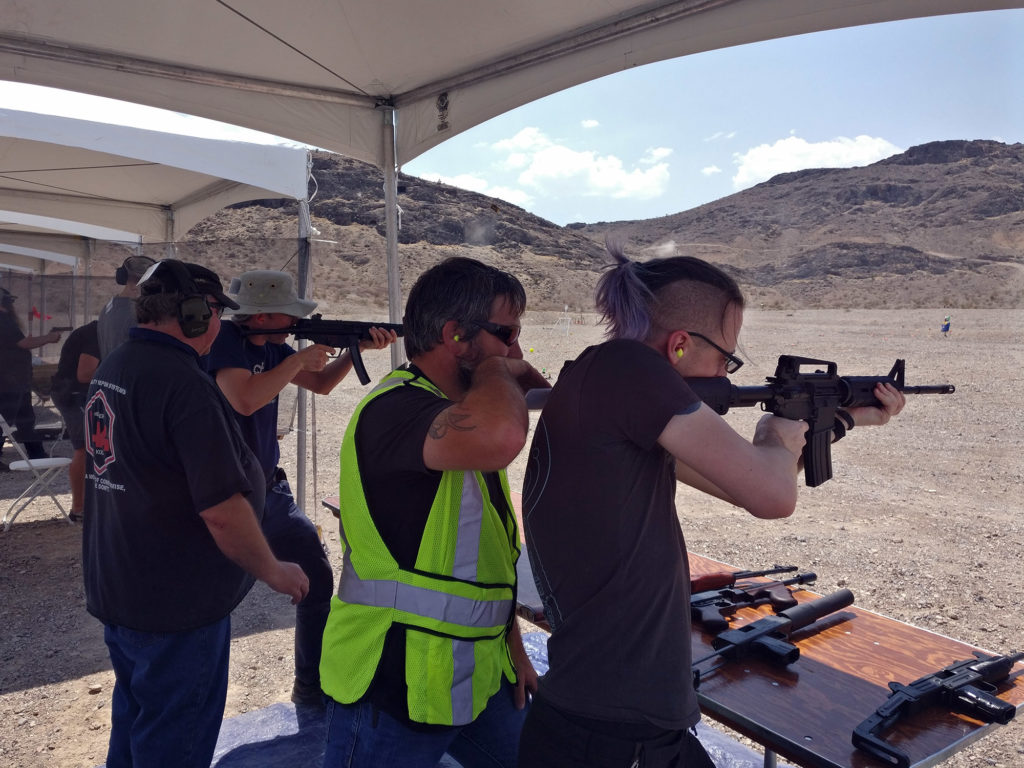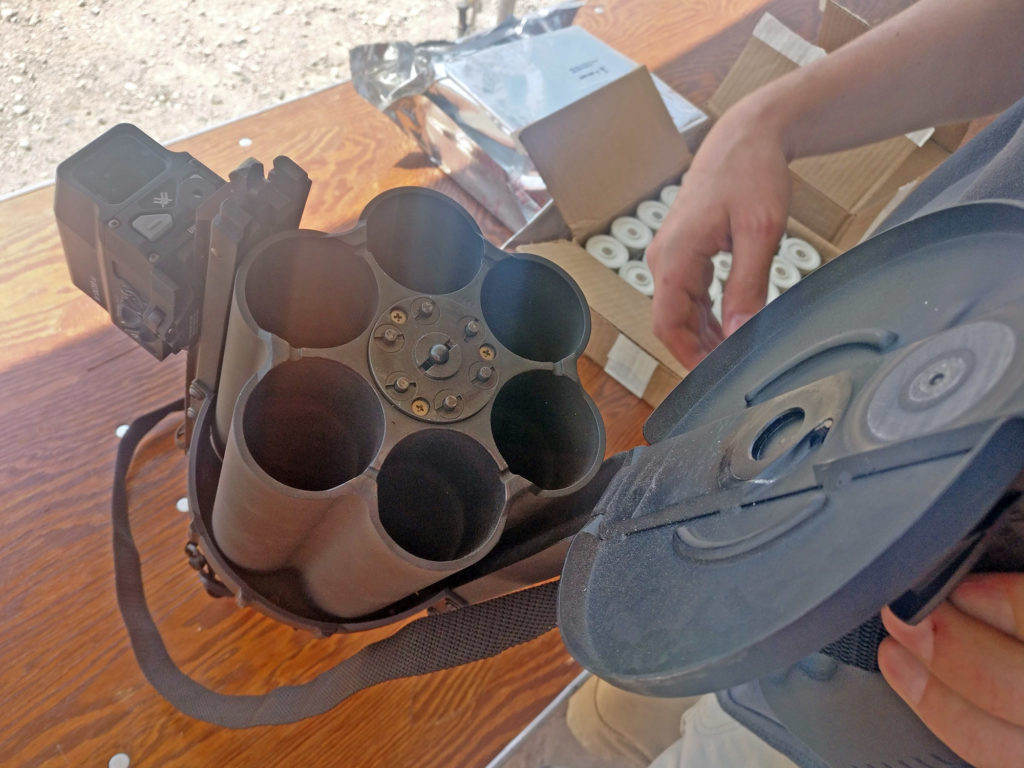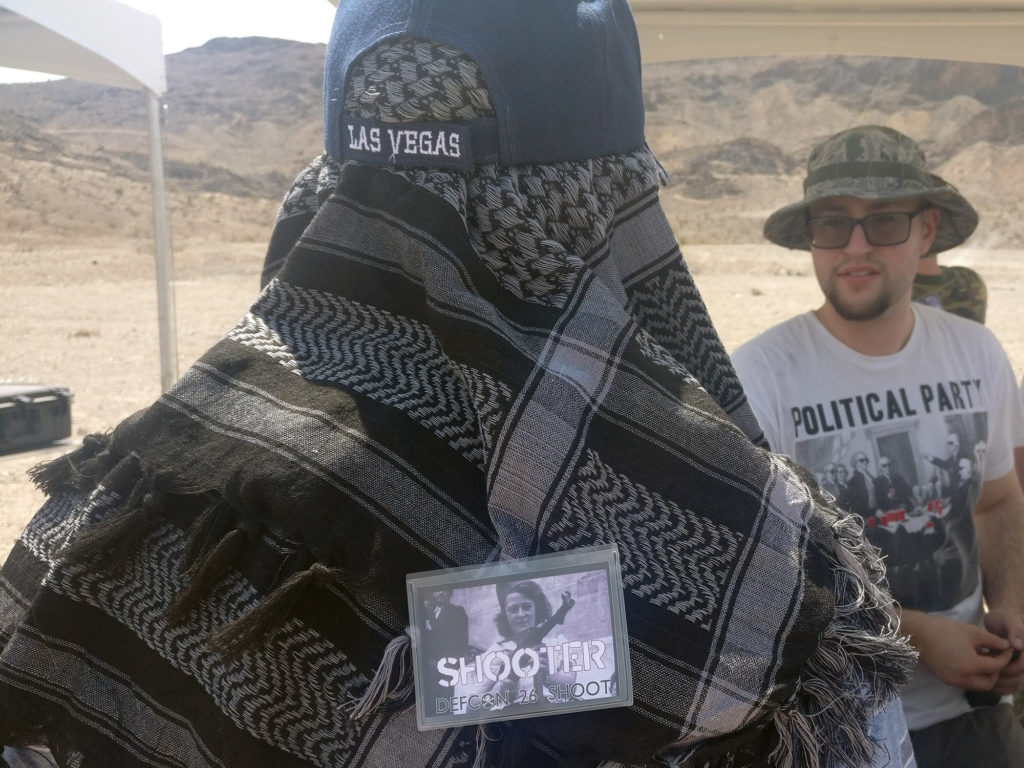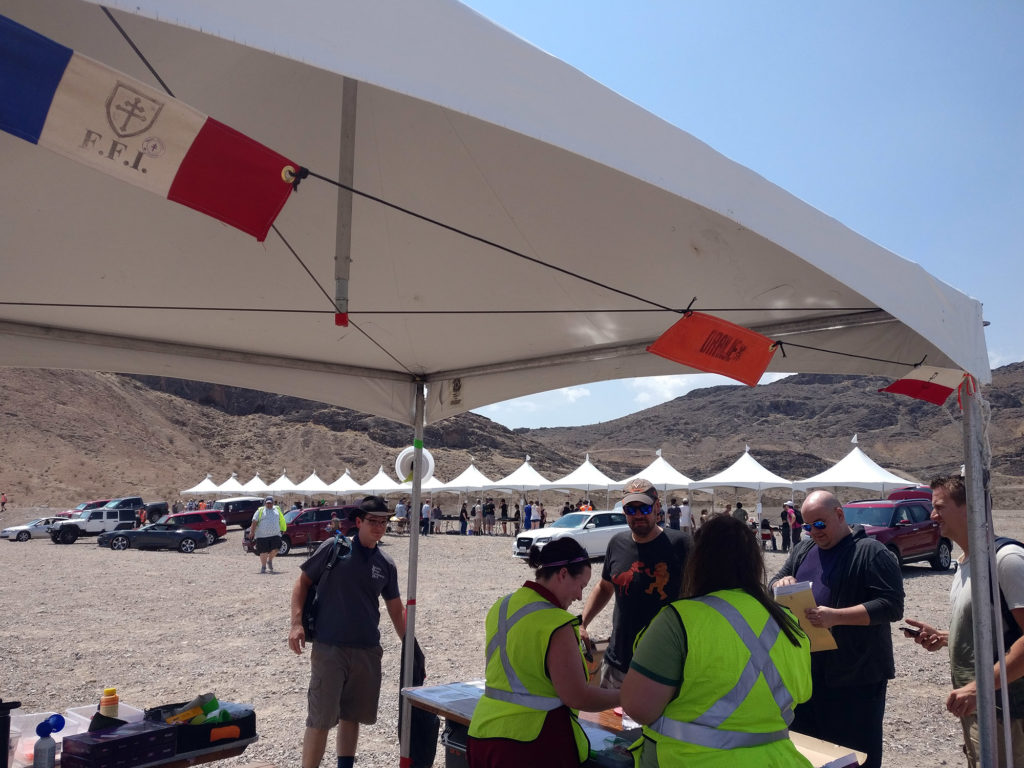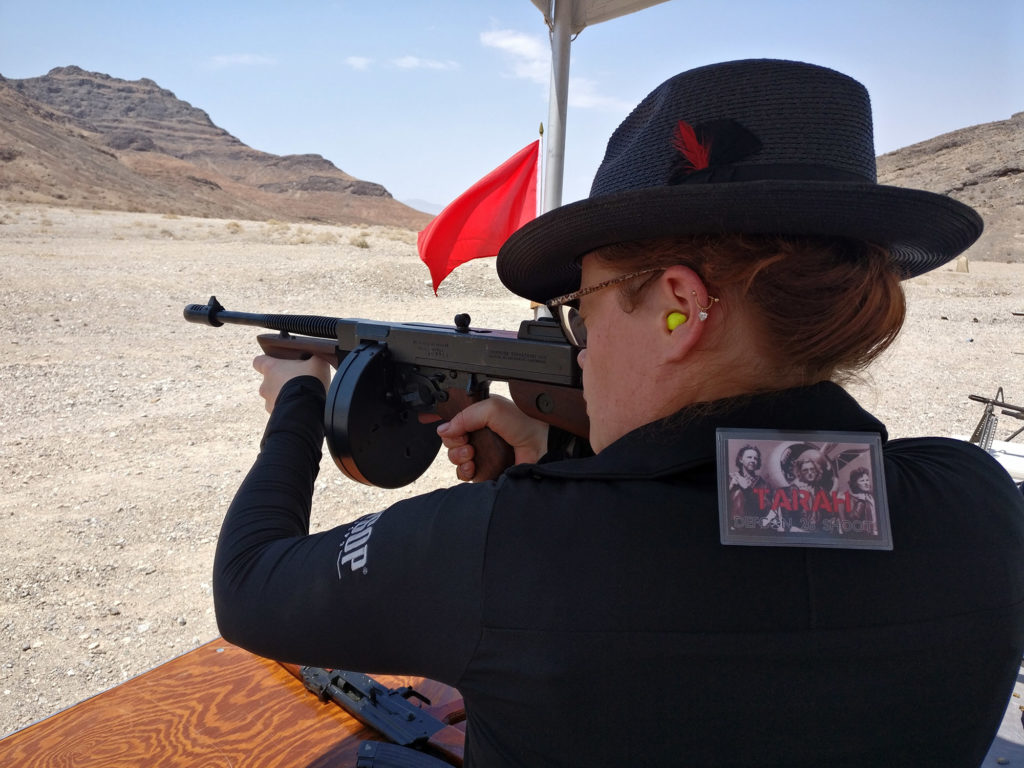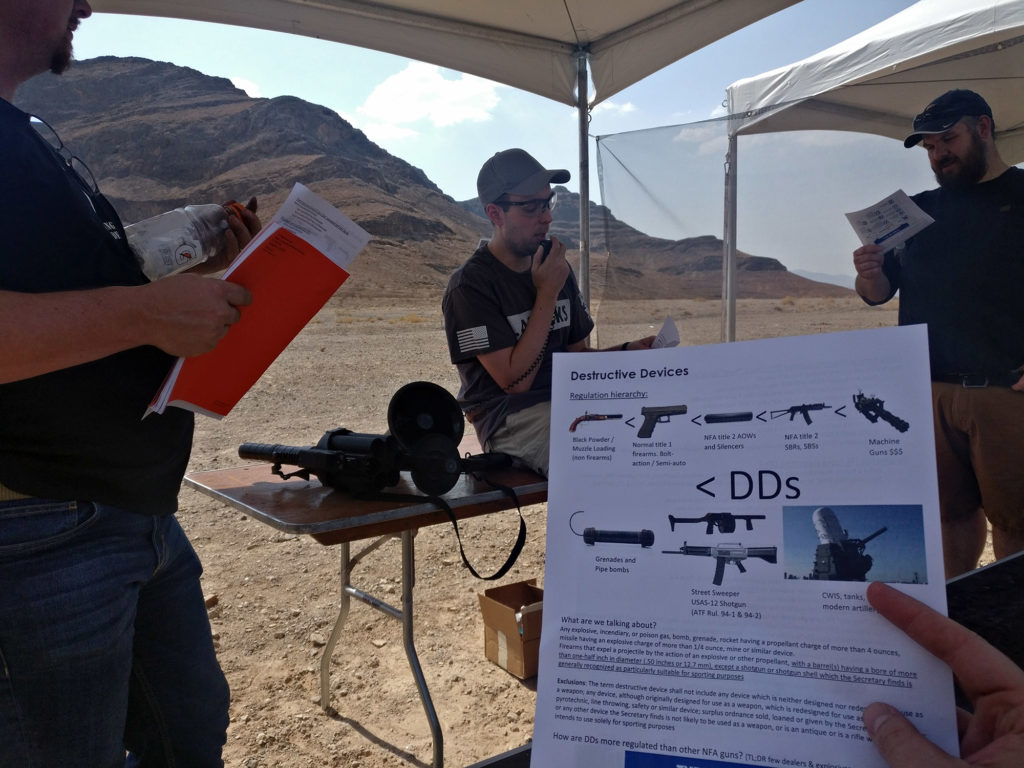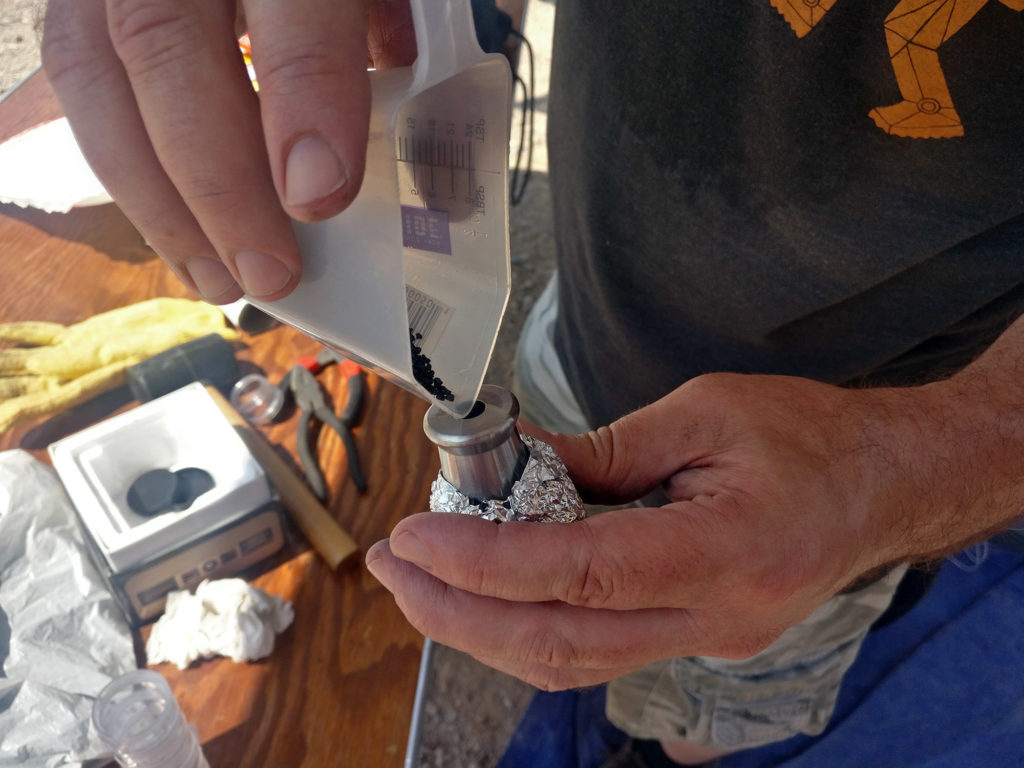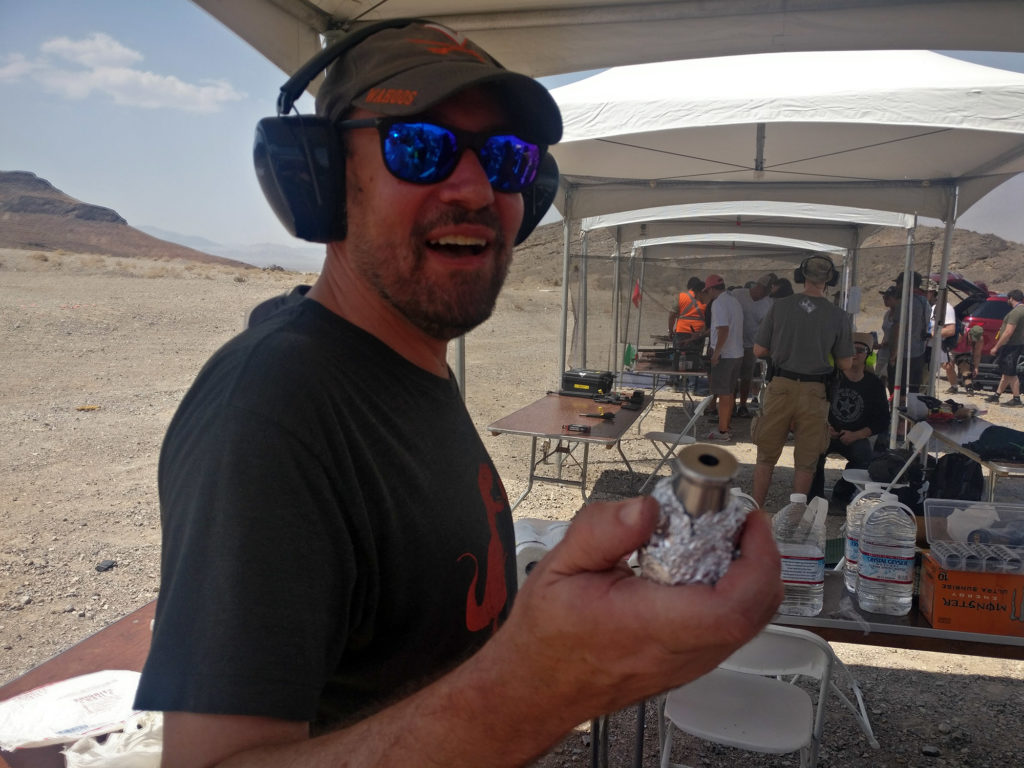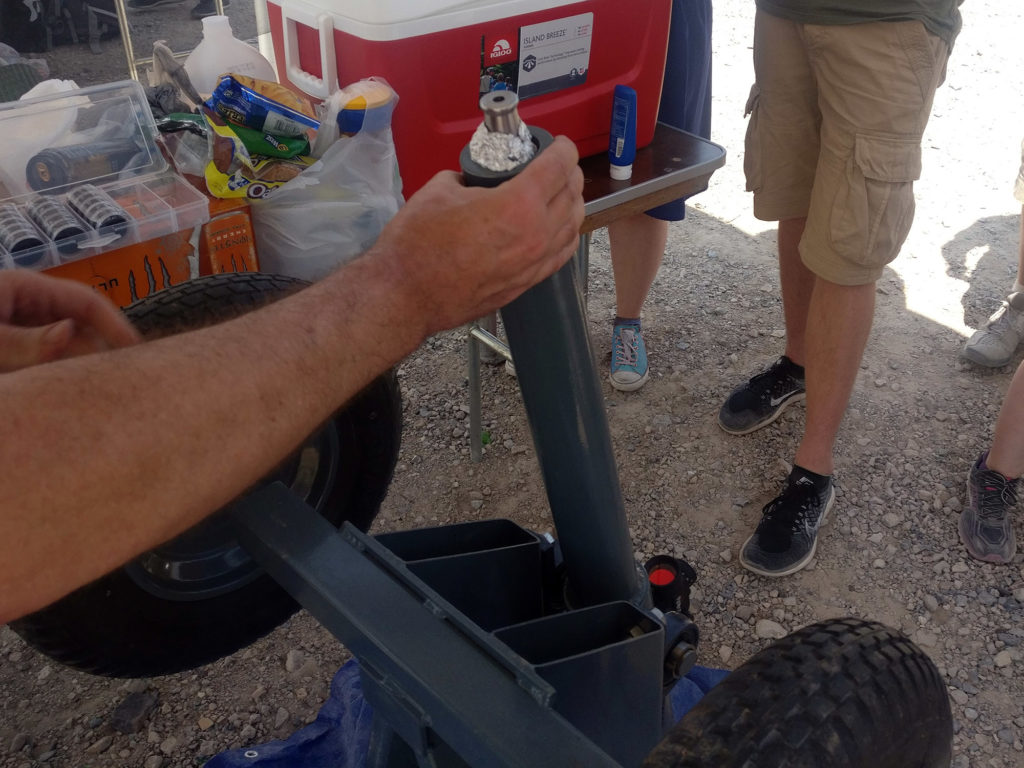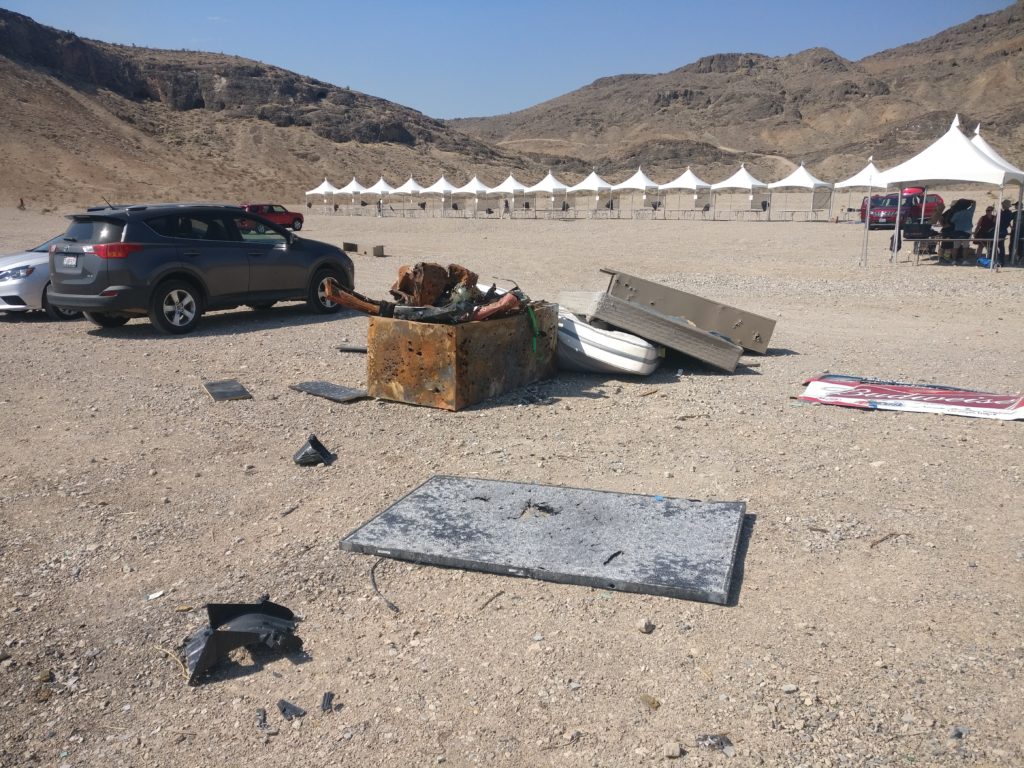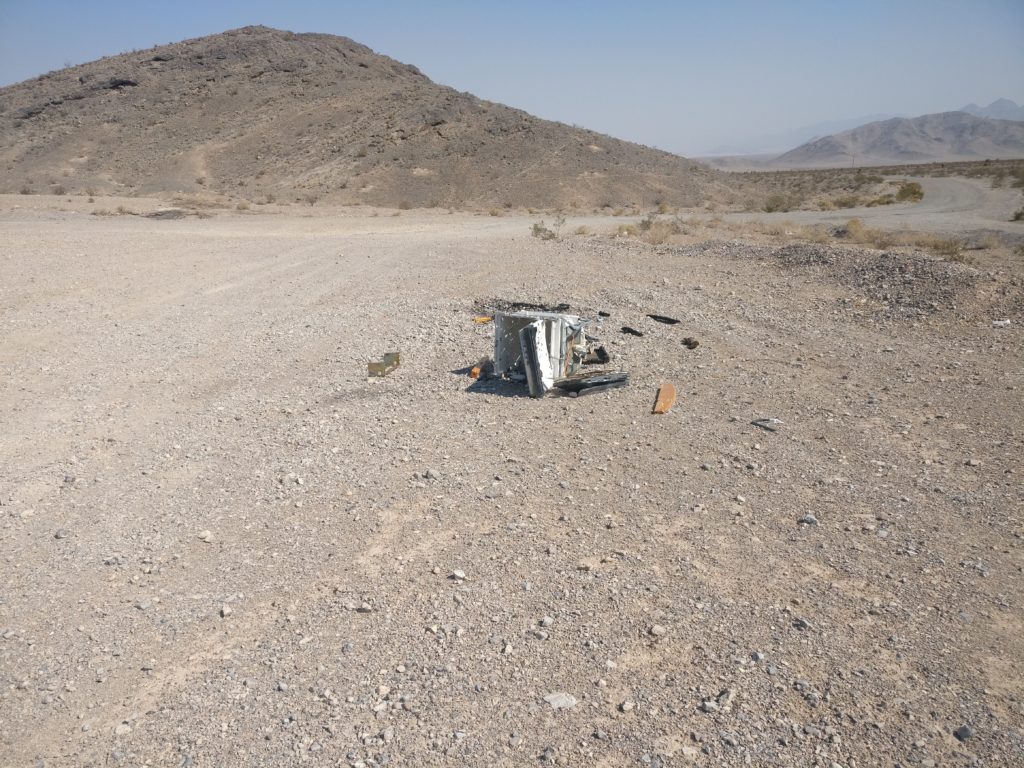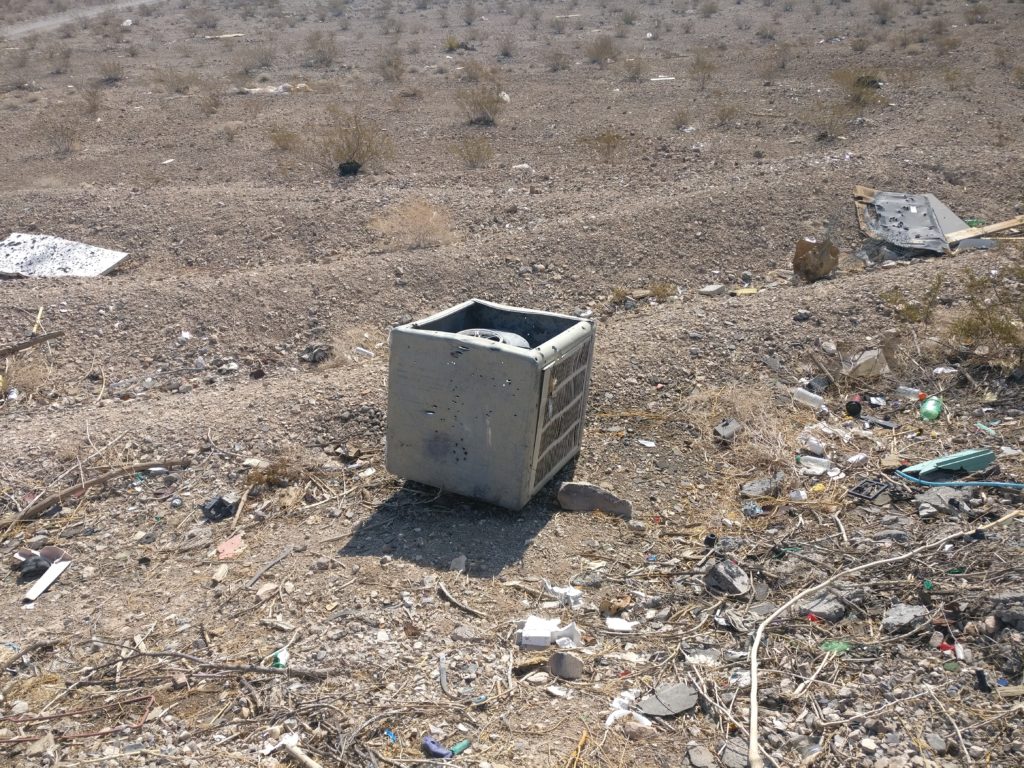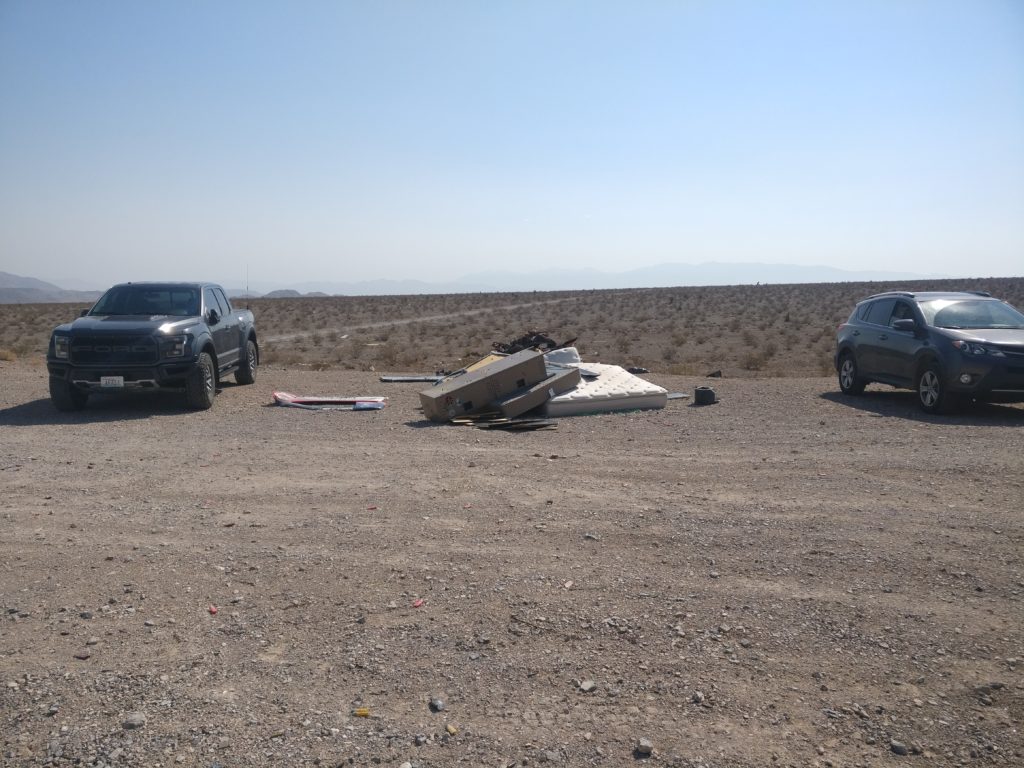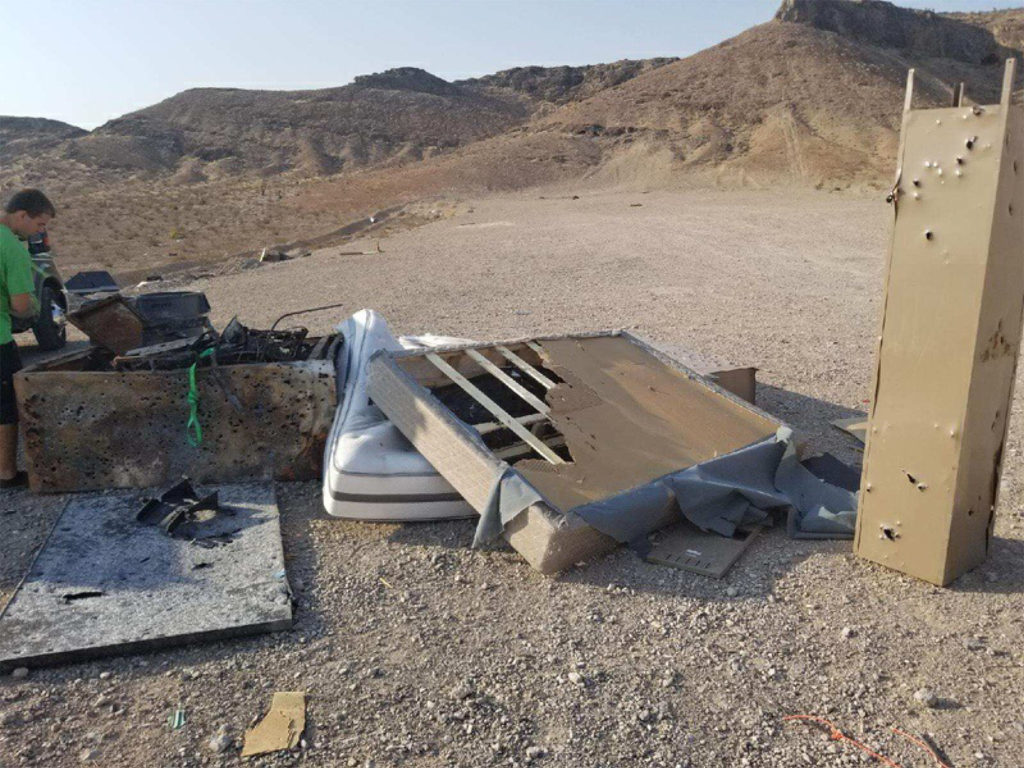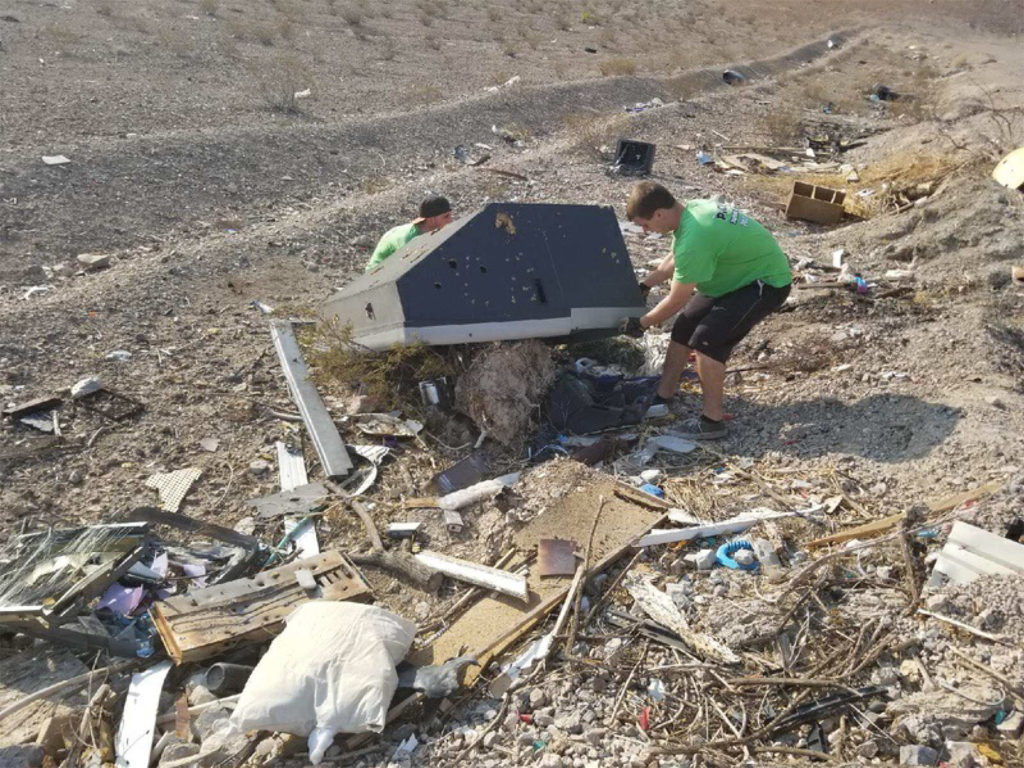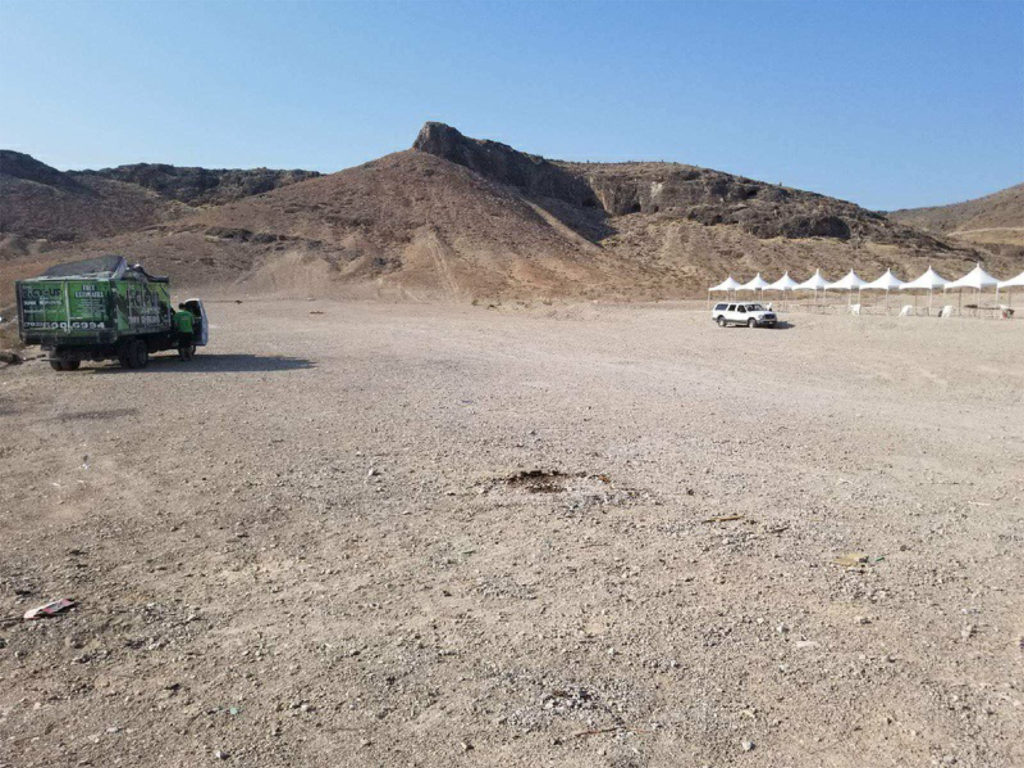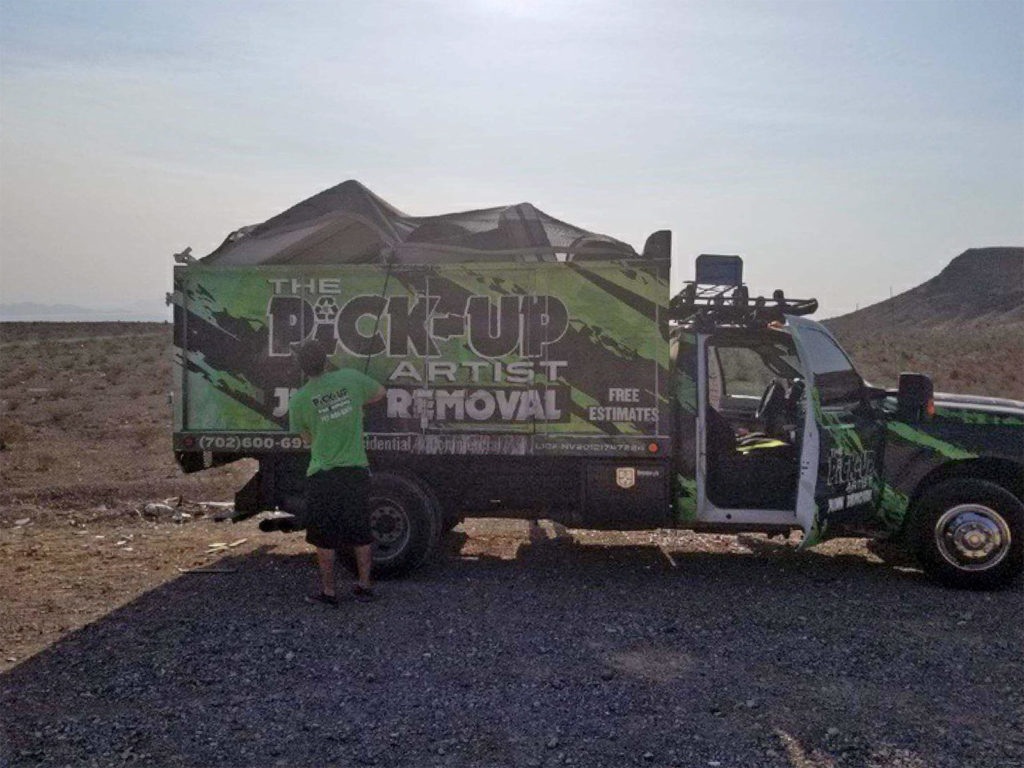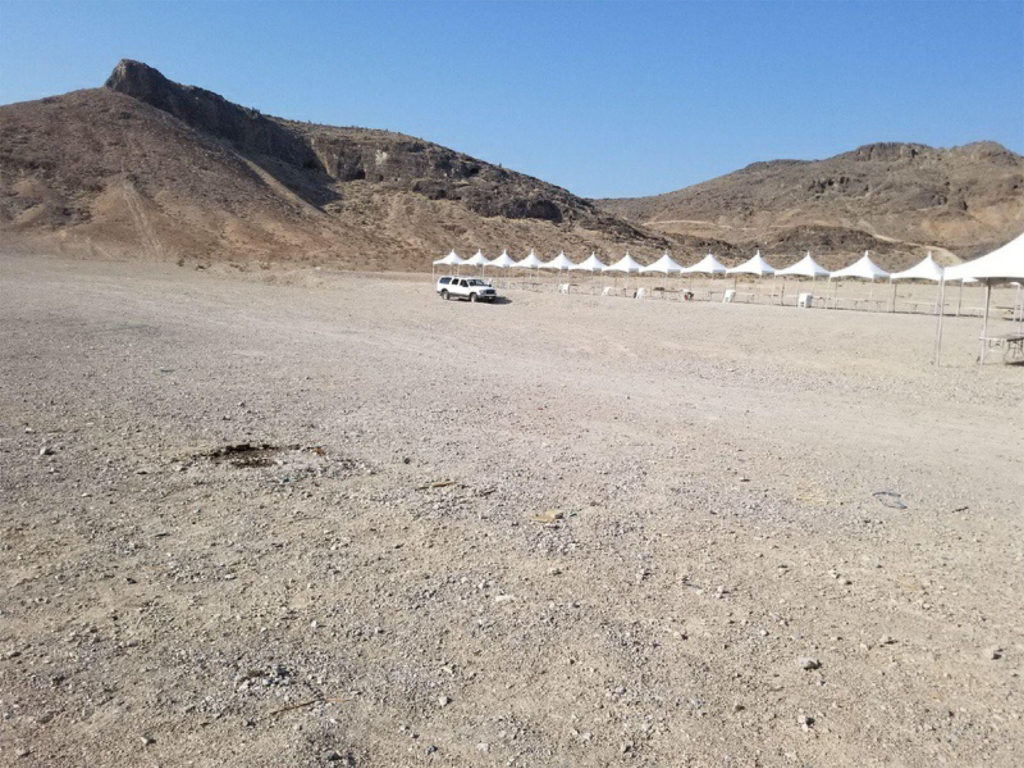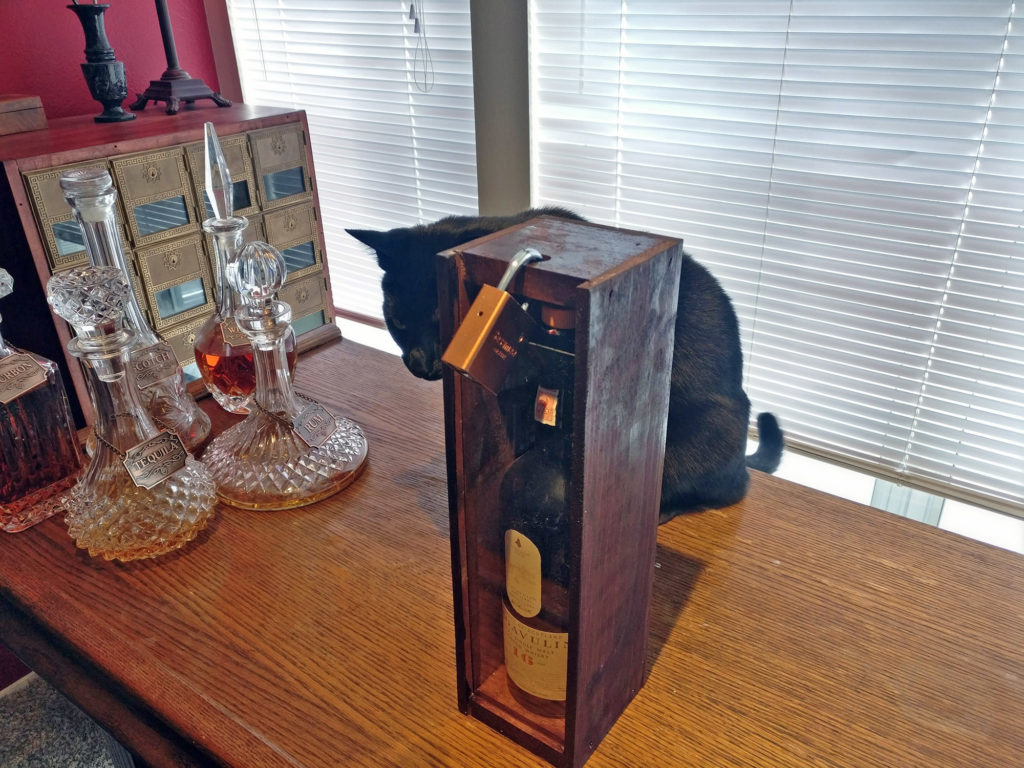“You can’t write endless laws and expect to prevent every crime. All it does is reduce liberty without actually stopping criminals.”
“We live in a free society. Everyday we have opportunities and chances that others can only dream of… and the price we pay is the occasional tragedy. I and many others accept that price, when the alternative is a nanny state like England or Singapore.”
“Personal responsibility and rugged individualism are the pillars of who we are. We cannot expect anyone but ourselves to watch out for us or lord over us.”
All of these quotes are more-or-less verbatim, and they come from many conversations I’ve had over the years with fellow hackers, friends, and family. The conversation is sometimes about guns, sometimes about drugs, sometimes about freedom of speech or thought. I’ve probably advanced something of the above thoughts in various contexts as often as I have heard them from others.
The Hackers on Planet Earth conference, from its very beginning, has been a magical place where the line between organizers and attendees has always been blurry. Sometimes this grey area has stemmed from the way that attendees and bystanders so often pitch in to raise banners, stand up activities, and fix technical glitches. Other times the “leaderless” nature of HOPE has manifested as a blind eye turned to shenanigans and pranks that would bring quick reprimand at other events. I have experienced more interesting conversations and made stronger and longer bonds with others at HOPE than perhaps any other event over the years, all-told.
This recent weekend in New York City, however, we all experienced the downside of what can happen at a semi-anarchistic event where almost anything goes and where it often feels that there’s no one at the wheel.
I expect that almost all of you have by now read the assorted coverage of how the HOPE conference was descended upon by a small but willful cadre of instigators / alt-right / fascist boys whose mission was to infiltrate the event and cause disruption by harassing attendees and attempting to intimidate and stalk some of the speakers. If you haven’t seen the details there, Unicorn Riot were among the first to report directly from the scene of the event. That piece is mostly accurate, and additional coverage from Motherboard took a more measured tone but conveyed no less concern over the failings of the organizers, the staff, and the community as a whole at HOPE. There was also a later article up on The Parallax by Seth Rosenblatt.
You can take time to read the news if you haven’t yet already. (Or, if you’re a patron of the terrific Violet Blue you can check a recent Patreon entry in her Cybersecurity News feature for the bullet.) But what I’m writing here will not be about the incidents of disruption at HOPE this year as much as it will be about what I would have hoped to have seen in response.
Love all, Hack all
The HOPE conference has adopted a Code of Conduct that, while not the most comprehensive and explicit that I’ve ever seen, is remarkably in-line with their community values and conveys both support for the airing of diverse opinions while also expressing (with near-ironclad language) what is ostensibly a strong commitment to preserving diverse voices and guarding the dignity and safety of individuals in attendance… especially people who may be marginalized or more easily preyed upon or pushed out of mainstream positions of acceptance.
The HOPE CoC urges everyone to “step beyond prejudices, societal norms, and other perspectives that lead to disrespect for people and groups” and expresses explicit support for people of all ethnicities, gender identities, etc. The CoC states that HOPE does not want “any [attendee] to feel marginalized or intimidated” and calls out a number of specific behaviors that will be considered a violation of the event’s rules, including “stalking, following, harassing photography or recording, disruption of talks or other events, inappropriate physical contact, or unwelcome sexual attention.”
It may be difficult for some to look at a document such as this and square it with the fact that a posse of MAGA-hat-wearing alt-right shitbags could have wandered around the Hotel Pennsylvania with what appeared to be total impunity, at liberty to harass or intimidate conference-goers. But a closer look at the history of HOPE and the east coast hacker scene (particularly in New York) can shed light on this topic, I believe.
The Power Was Inside You All Along
To truly know and understand the east coast hacking scene, it is possible that you need to have experienced hacker events in New York, Philadelphia, or Pittsburgh in earlier years. Better still would be a history of attending the parties or crashing at the spaces and homes of various hacker collectives in the mid-Atlantic region. I can recall gatherings on the rooftop of the Hacker Halfway House in Brooklyn or PumpCon or even down in DC… occasions when most of the best things happened without explicit authorization because folk simply seized the moment and made coolness happen. Whether by slipping a maintenance man at a hotel $20 on the side in order to unofficially have a meeting room or by “happening upon” a source of electricity nearby a pool to set up a DJ’s table… many of us were simply accustomed to asking forgiveness instead of permission.
A lot of this mentality still percolates through the hacker scene in NYC. A classic example of this at HOPE could be seen with regard to the “signage on the floor” near the info booth. For those unaware, there were some raised eyebrows early-on in the conference regarding a message that was written on the floor using masking tape.
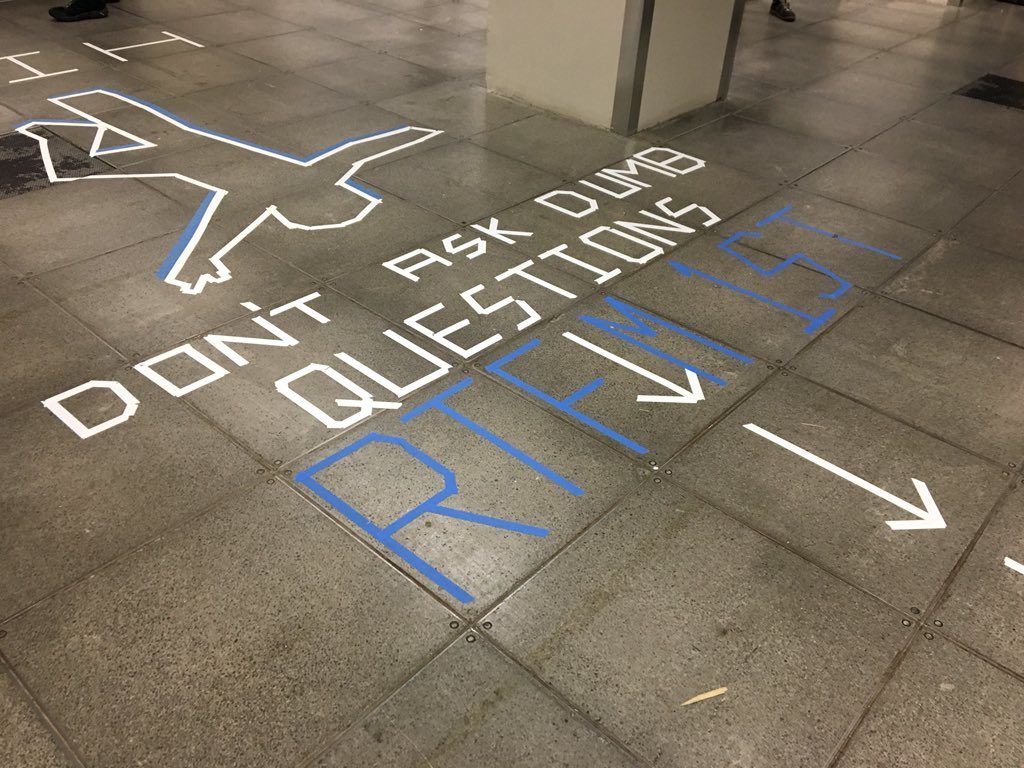
While it encouraged attendees to read published information before asking questions with obvious answers, the brusque delivery of such a message had some folk taken aback. And one can admit, while the sentiment is something with which most hackers would agree (learning on your own is better than immediately asking for help before you’ve even tried) the manner in which this was being expressed was somewhat uncharitable.
When this was pointed out to the con, their response was a distinct non-response. What unfolded was very characteristic of HOPE… they didn’t immediately move to address the concern, but at the same time they didn’t stand in the way of others who eventually chose to edit the sign themselves. When @ystvns & @dbateyko knelt down and rearranged the tape letters to spell out something different and more constructive, they weren’t stopped by security or reprimanded by event staff. Quite the contrary, the official HOPE twitter account sung the praises of folk who took it upon themselves to remake their environment in a way that better suited them and their needs.
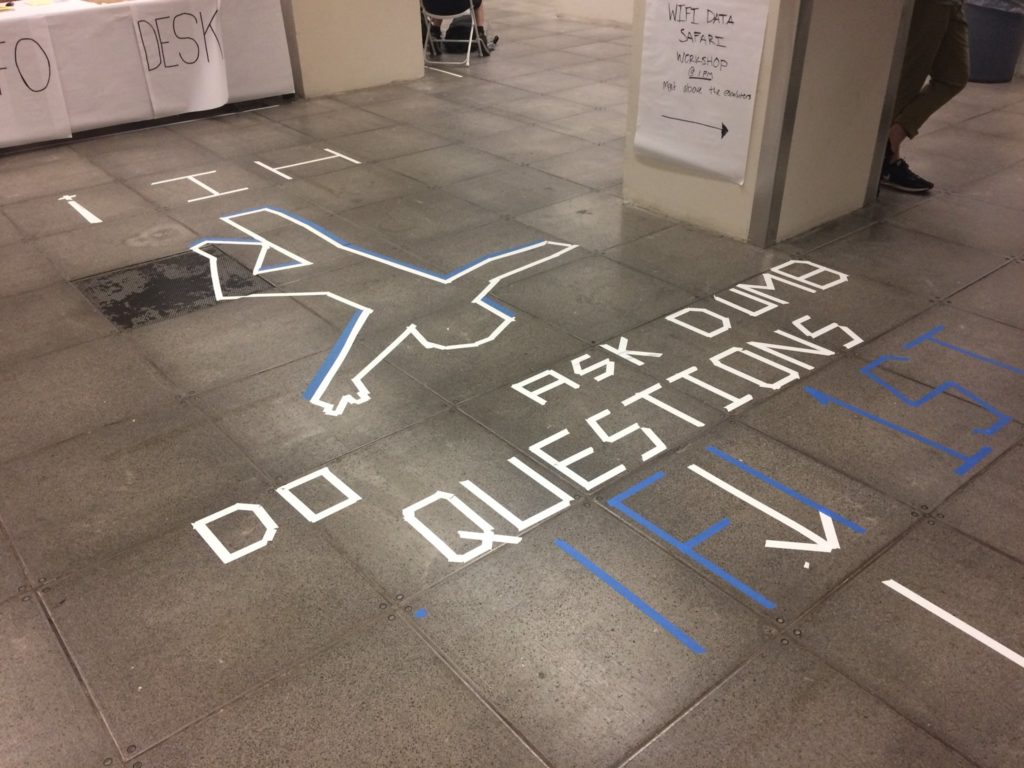
This is part of what makes HOPE special. They show true support for the hacker ethos of “if this thing isn’t working for me they way I want, I should find out how to change this thing!” And that’s great… with regard to modifying technical systems, options for cheap food, or how to play your music at a party. Where this kind of thinking no longer really works at large events has to do with security of the group. For context, there are many hackers (particularly at HOPE) with deep roots in both the punk and Burning Man communities… such folk are familiar with places where groups self-police from top-to-bottom.
The punk shows of my native Philadelphia in the 80s and 90s serve as an example here. I can recall being in the basement of the Unitarian Church or the TLA on South Street… when white pride skinheads would show up and try to crash the concert, seldom did the crowd wait for event security to deal with them. Fists and elbows were thrown in the circle pit until the fascists understood that they weren’t welcome and had to get the hell out. Scans of some very old photos of mine illustrate this point…
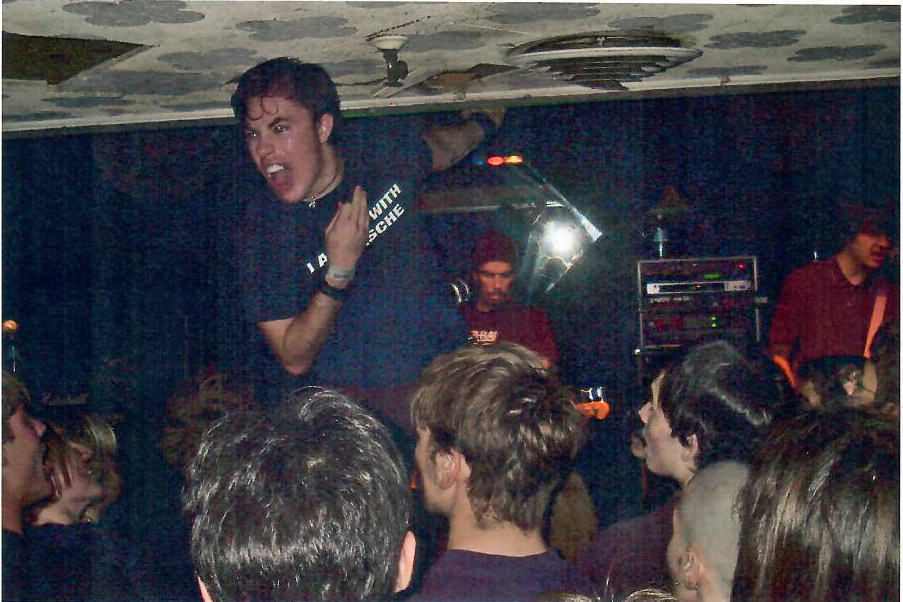
a lead singer admonishes fascists and encourages the crowd to stand up and protect one another.
|

circle pit immediately in the aftermath of a fight. assholes were forcefully ejected from the venue.
|

group unity and principles of relying on one another to be safe and be strong are reinforced by the band
|
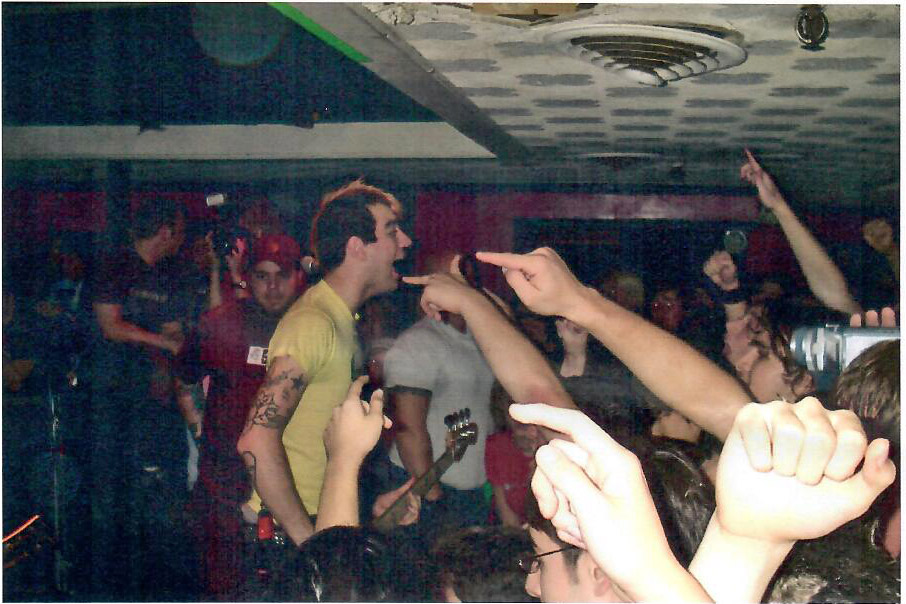
another anti-fascist / anti-racist band reminds everyone that we have to look out for and protect one another
|
But the past is the past. Try that today and what do you think would happen? I guarantee you it would result in two things:
- Both the racists as well as the regular attendees would be ejected and wind up next to one another on the same curb outside
- Instead of just taking a punch and going home, the interlopers would call police who will respond and, quite likely, side with the proud boys
Burning Man, too, has a strong philosophy of self-reliance and self-policing. Burners in the hacker world might take a similar view of how to handle intruders. They value immediate participation and principles such as civic responsibility and communal effort would likely have some folk thinking that the ideal of “if you see a problem, step up and try to fix the problem!” would apply even to security threats, not just faulty art installations or people who need more water. Indeed, the head of HOPE’s security detail (a venerable member of the Burning Man crowd) expressed such a notion to some of the speakers and attendees who were inquiring why event security wasn’t implementing the Code of Conduct more directly and immediately. Here, we see Roadie responding to two women who stated that they observed harassment and that reports the community made to staff were not acted upon. When one event speaker, Gus Andrews, acknowledged aloud that, “There is a need for somebody, hopefully someone with the spoons to handle it, to take point on the Code of Conduct,” Roadie shot back later that day with an exasperated-sounding, “OH MY GAWD! That person should be YOU. Why defer and hope ‘someone’ will do it? If you have better ideas don’t you think you should share them and help the process get better?”
Permit me to assert that, while this is a fine viewpoint to have during the rest of the year, when people are all at their desks and have the time and the spoons to put in such efforts, it is a rather unhelpful comment during the actual event. Attendees who came to NYC expected to spend their energy, time, and resources participating in the con, not fixing the con or protecting others who needed to stay safe. I, frankly, do have the energy and willingness to work on this matter (which is why I’m planning to engage with the organizers and staff if they will have my input) but that doesn’t mean I feel great about missing out on more than half of the event because I spent time escorting LGBTQ folk around the con floor or walking speakers to and from their hotel rooms when they were being stalked and harassed.
During the event itself, the organizers and the security team could have done much more to become directly involved in the safety of the participants and speakers instead of waiting for the attendees to make the first move and report problems, urge action, etc. The HOPE official twitter account announced on Saturday afternoon, “Anyone who’s a nazi, preaching hatred/racism or harassing someone will be booted from @hopeconf. But you have to let our security team know!” Again, this illustrates the wildly differing views that the organizers had compared with the expectations of attendees when it came to security proactively engaging with the alt right crowd who crashed the party.
Ask yourself, would you expect this kind of public statement from a major league baseball team if a loud, angry drunk was running amok in the upper deck of their stadium during a game or from a rock concert venue if someone was setting of fireworks in the aisles during songs? Yes, attendees should report problems to event staff… but the event itself should also have a significant enough presence on site and they should be in direct communication enough with their HQ and Dispatch so that their staff can step in before things get bad enough for attendees to have to complain en masse.
Which leads directly to the next point…
Why Speak Up When There’s No One Listening?
The other side of the equation of the “attendees need to step up and take responsibility and report problems to the conference so that staff can handle them” argument (which, as mentioned above, isn’t quite the best position to take in the first place) is the (one would think obvious) need for said staff to appear receptive and helpful in the eyes of the attendees. Yet – as we saw from multiple statements by many of the people at HOPE – a lot of the blue-shirted staff members at the conference reacted to reports of problems by the alt right trolls either by (a) informing people that they had told the “wrong” staff members and directed them elsewhere or (b) by actively shutting down reports of problems with pushback that ranged from “that doesn’t fit the definition of harassment” to “did you do anything to provoke them?” This, in my view, was the biggest issue where HOPE did not meet the expected standard to which the community was rightfully holding them.
By now (especially if you’ve read any of the above-linked articles or twitter threads from people who were in attendance) you are aware that many individuals described interactions with HOPE staff members that left them shocked over what was seen as gross insensitivity toward victims attempting to report problems or what was interpreted as distinct camaraderie between certain staff members and the very instigators from the alt right who were causing trouble.
I’m not here to complain about the fact that HOPE security forced one German kid to return a MAGA hat which he snatched off of the head of one of the alt right trolls. Physical actions, unwanted physical contact, and theft of personal property are all bright-line, clear-cut transgressions of any reasonable Code of Conduct and event rules. I agree that HOPE did the right thing in returning the stolen property. If this makes you stop reading, feel free. Please see the cashier in the ticket booth at the top of this page for a full refund of your internet dollars that you spent to browse my blog.
What I and others most certainly are pretty justified in being shocked and appalled about, however, is the fact that many reports have surfaced of HOPE staff members speaking with dismissiveness or outright disdain to the attendees… and HOPE staff members being visibly chummy (or even laughing over drinks off-site) with the individuals who arrived intent on causing problems. That is not OK.
Any event of this scale should have staff who are trained in even a cursory manner about how to interact with attendees (particularly attendees who appear to be in a crisis situation or who are attempting to solve a problem that’s troubling them) with respect. Staff should be trained how to see things through a lens of professional detachment and how to avoid the perception of taking sides or being biased.
I have personally listened to the audio recording made by Unicorn Riot reporters while they attempted to describe problems taking place upstairs to staff, only to be hushed and dismissed… and part-way through that conversation Koosh arrives, very loudly hollers at everyone, and proceeds to assert that any iconography (including Nazi apparel) is fine at HOPE, according to him. This as well as other accounts from different attendees who had similar conversations are going to be hard for HOPE to manage, given this tweet… because I do not think that Koosh or other staff members are personally to blame for such interactions. They were under tremendous stress and were not equipped with a playbook and guidance from leadership before this event kicked off.
I personally watched Bernie S – a staff member who is older, is a cis het white guy, and is over 6’ tall – aggressively talking down to a near-tears trans woman who was all of 5’4” and weighed maybe 115 lbs soaking wet with rocks in her pockets. I kept stepping back since I wasn’t directly in that conversation and I was trying to be polite and maintain a respectful distance, but his increasing volume levels resulted in my repeatedly overhearing what was being said. Bernie is a long-time friend of mine. He is a terrific hacker and event runner. But he should definitely not have been put into a position where he was interacting with victims.
Currently I am not aware of any single HOPE staff member (including individuals on the Code of Conduct team) who had any professional training in Incident Management, Crisis Intervention, or Victim Assistance. Diverse groups – everyone from NOVA to the DOJ – has training programs that are available, often online, for this kind of education.
While most staff members appeared to simply be un-equipped with the right tools to do emotional triaging and take statements in a neutral and supportive manner… there were a minority of HOPE staff (particularly on the security team) who appeared to be outright antagonistic to attendees with concerns. I have already mentioned above the widely-disseminated photos of HOPE security staff sharing laughs and beers at Hooters with a group of the disruptors. It doesn’t matter if these people are legitimately your friends in real life… at the con, when you are event staff, you are obliged to adopt a neutral and unbiased posture if you wish to convey to attendees that you have their safety and well-being at heart.
This is to say nothing of the ongoing conversation that was taking place all weekend via IRC / SMS-IRC which was full of HOPE staff members and their associates blatantly speaking ill of the event attendees and speakers. A small sampling of such chatter includes…
<recoXXXXXX> Who else is in the room with the traitor giving the talk? [the “traitor” being Chelsea Manning… the invited keynote speaker who reported large men who tried to corner her and who followed her back to her room, only to be told by event security that they would not kick out the individuals who were known to be causing havoc at the conference]
<ch0lXXXXXX> I think I will some wear nationalist t-shirts at defcon this year.
<ch0lXXXXXX> I should have kept my swastika tat.
<licuXXXXXX> maybe some trump challenge coins would be good for the lulz
<lameXXXXXX> Its all the fucking trannies causing shit woth their fucked up hormone levels and frahkle psychiatric state
<recoXXXXXX> Please force add (XXX) XXX-9274 chelseas-dick
<mathXXXXXX> Wow look at all you mofos not helping clean up hope
<recoXXXXXX> Get the coc crew to help
<recoXXXXXX> Since it’s their con according to them
NOTE – I’m redacting the names here because I cannot personally verify a primary source on that IRC chat log dump. But more than one person who allegedly was participating in (or was force-added to) the chat has acknowledged it took place. I will let internal HOPE investigations make their own determination of veracity there.
Disrespect for speakers, attendees, or fellow staff members makes an event look disorganized and chaotic. Again, to be totally clear… I think that everybody has the absolute, unquestioned right to hold whatever views and beliefs they wish in their own head and in their own heart. My criticism here is not about that. However, an event most assuredly is not out-of-line if they opt to instruct their staff (especially their security team) that when they are working and representing the conference, they are obliged to maintain a respectful and neutral attitude and decorum. I mean, can’t you keep hatred and bullshit like this in check for just one bloody weekend? Anything less than this, the attendee base as a whole begins to question whether the event has everyone’s best interests at heart.
The Right to Be Anonymous
HOPE may be one of the last remaining events with what used to be the universal photo policy at all hacker gatherings. Explicitly stated in the program and reinforced verbally by staff if someone is breaking this rule, the HOPE conference values the privacy and anonymity of their attendees to such a degree that the working rule is “do not take crowd shots, and do not film or photograph individuals if they do not consent to being filmed.” That is solid doctrine, in my view. It’s harder and harder to enforce (both in terms of how covert many cameras are nowadays and also due to changing societal norms surrounding the use of camera phones, social media, etc) but HOPE has held to this policy for ages and I salute them for it.
However, on at least one occasion of which I’m directly aware (and I have anecdotal but unconfirmed accounts of others) some of the alt right infiltrators either reported attendees filming them to security (in an attempt to have the regular attendees disciplined / thrown out) or they outright threatened other attendees in regard to being filmed.
I personally witnessed HOPE conference staff engaging in team debates about how to handle such matters. (Again, the staff members involved can hopefully confirm that I was not trying to eavesdrop and that I repeatedly backed off as I waited to speak with them. It was clear that they were engaged in heavy discussion and it wasn’t my place to be a part of that conversation… but for as much as I stepped away, voices kept raising and I inadvertently overheard parts of what was being said.) I recall one distinct conversation between CoC team mebers as they seemed to agonize over the language of the photo policy when one of the MAGA-hat wearing provocateurs reported another event attendee (a speaker, in fact) for “filming him without consent.”
I stood by, dumbfounded, as they tried to dissect the situation and figure out whether this filming was a violation of HOPE’s event rules (they appeared to decide that it was) and then determine what remediation action was going to be necessary. Again, hindsight is 20/20 and I’m going to try to word my thoughts in a supportive way that doesn’t come across as Monday-morning quarterbacking… but any event policy that prohibits photos should be naturally understood to not prohibit documentation of specific abuses or problems if the person doing the filming explicitly demonstrates that they are doing so in order to report an issue.
Group / crowd photos or harassing photos when someone says “don’t film me” which then get posted to Facebook or Twitter are naturally something that I support HOPE in working to prevent.
Covert photos of harassment or fights or other evidence of incidents which someone then privately shares with organizers or with authorities at the hotel in an effort to stop a problem are not at all something that I think should be prohibited.
You Can’t Define Good Faith… But You Know It When You See It
The above-described problem illustrates exactly what was so insidious about the alt right infiltrators and agents provocateur at the HOPE conference this summer. Dedicated and well-prepared trolls have a specific plan for their actions. They know exactly where the line is and they take great care to not cross it. Instigators like the MAGA hat crowd whom we saw at HOPE had a playbook and they kept to it like well-rehearsed professionals. They successfully weaponized the conference rules to their own advantage while catching the rest of the attendees with their guard down.
And here is where we see just how important it is for event staff to have the freedom to use their best judgement in edge cases. Let’s say you’re walking down 7th Avenue near the Hotel Penn one night and a stranger approaches you. They aren’t doing anything that is outright illegal, but your spider sense tingles. You are pretty sure that they’re up to no good and that you are maybe being set up for a mugging or for a street scam or something else undesirable. Everyone should pretty much understand that you are under no obligation to keep interacting with them and that no one would blame you if you want to get away from them. So you cross the street or you quicken your stride… and perhaps are met with some string of objections from over your shoulder as they protest that they “weren’t doing anything wrong!” and so on and so on. But, let’s be honest, you knew that they were up to no good and you took the proper steps to protect yourself.
Conference events have this same right. An attendee who is disrupting talk sessions (but not going so far as to make actual threats) or following women down hallways (but never actually getting close enough to touch them) or getting directly in someone’s face (but not actually pushing them) knows exactly what they’re doing. They are playing “within the rules” but finding ways to still make others feel threatened, unwelcome, or unable to participate in the conference.
This is nothing more than a grown-up version of the immature little kids’ nonsense of “I’m not touching you!” in the backseat of a car. Yes, technically the person is “following the rules” but (and here’s the key thing) they’re not acting in good faith.

In such a hypothetical family road trip scenario, what happens next? Does anyone honestly know of such a situation wherein the parent in the front seat would ever adjust their rearview mirror, look at what was happening, and then simply proclaim, “Well, Chris, they’re right… Sam honestly is not touching you! So there’s nothing anybody can do about it. Sorry!”
Of course that’s not what would happen! The parent would whip their head around, scowl at the misbehaving child, and sternly say, “Knock it off, Sam!” Why? Because the parent can easily see what presumably the HOPE conference leadership was unable to discern for an entire weekend: that it’s possible to “follow the rules” while acting in bad faith.
Let me be very clear: Bad faith attendees have no place at an event. They are not there to learn. They are not there to participate. They are not there to better the experience of others. While it may be true that such individuals are “following the rules” it is completely reasonable for event staff to take a proactive stance and confront them. How would such a possible interaction be handled? Allow me to quote from an actual example script that I offered to someone during the weekend of HOPE. (This tactic was not employed, but it’s an example of exactly what I would have said to these instigators had they been at one of my events.)
Security: “Pardon me. Can we speak with you for a minute?”
Troublemaker: “Yeah, what’s up?”
Security: “So, we noticed you wearing a lot of Trump symbolism and being very loud and full of bluster around a number of people here.”
Troublemaker: “Yeah, I’m very passionate about my political views.”
Security: “Well, we’ve been getting some complaints about that, and folk are alleging that you’re intentionally just trying to cause trouble and sow discord.”
Troublemaker: “What damn snowflakes said that?! I’m not doing that! I’m just here to attend the event.”
Security: “Oh, ok… So you’re not trying to start fights or anything like that?”
Troublemaker: “No way, man, not at all!”
Security: “Wow, that’s a relief. You had a lot of people worried and asking for you to be removed. I’m very glad to hear that you’re not here to cause problems or harass anybody. So then let me tell you how this is going to go… There are specific individuals at this event who have been targets of harassment campaigns. They have no desire to speak to you. I’m going to make sure you understand who they are, because you are going to not approach them or speak to them in any way.”
Troublemaker: “Uhhh…”
Security: “To be clear, you said you’re here just to enjoy the event and not cause a problem, right? People who do not want to speak to you are not obliged to speak to you. And if you keep trying to speak to them, we consider that to be harassing behavior and you will be asked to leave. Similarly, if any other attendee at any time decides they don’t want to talk to you and tells you ‘don’t talk to me’ you are not to speak to them. Or else you will be asked to leave. So, if you are truly here with no intention of causing any trouble or getting anyone’s face and pressuring them speak to you when they don’t want to, you’ve got nothing to worry about. But if any of these individuals reports to us that you’ve spoken to them or sends us photos of you coming anywhere near them, then we’ll know you can’t follow simple rules. You just told me you weren’t here to cause a problem. If you can follow the rules, I will believe you. If you cannot follow these very simple rules, then I will not believe you. And you will be asked to leave. Now, if you think this is going to be too hard for you, I am happy to go get you a refund right now if you think this event is not for you. So, are you going to show me that you can be a grown-up, not cause trouble, refrain from speaking to people who have said they don’t want to speak to you, and not approach anyone who doesn’t want you around them? The choice is entirely up to you.”
You may criticize me and say that this would be putting the MAGA-hat wearing alt-right group into a “no-win” scenario. To say this is to miss the point entirely. These infiltrators put all of the attendees and the conference as a whole into a no-win scenario. Calling them out on their bullshit and giving them the choice of…
- behaving as expected (shocking everyone in the process)
- getting the fuck out
… is the only appropriate course of action, in my view.
No amount of “that’s not fair” being screamed from the backseat of a car should change a parent’s mind when they’re dedicated to disciplining an unruly child. And no amount of butthurt from some proud boys on /r/theDonald should make a conference waver in their dedication to ensuring that their event runs smoothly and their attendees feel safe and able to enjoy themselves for the reason that they all came to town.
Matthew Garrett put it best on Sunday after much of the shenanigans by troublemakers at HOPE. “Conferences are under no obligation to represent the community as it is,” he wrote. “Conference organisers get to choose to represent the community they want to see. If your conference attendees are repugnant, you bear responsibility for that.”
Specific Suggestions and Actionable Advice
This massive brain dump was something that I felt compelled to do, but if we are serious about improving things for the future, perhaps it’d be best if I were to distill my thoughts down to some specific suggestions:
- Security staff are mostly seen controlling the outer perimeter of HOPE. At the base of the escalators or at elevator landing on the 18th floor you can reliably encounter staff shirts and security engaging with folk, checking badges. However, there were many talk tracks where security or even staff presence seemed virtually non-existent, save for an A/V person or two. Likewise, out on the main con floor on the Mezz level… security tends to gather at their dispatch desk, but was only infrequently seen walking around and getting a pulse of how the event was flowing. That is a posture for being reactive, not proactive. Please considering bringing on additional staff whose positions would entail being seated in talk tracks up by the stages, looking out at the crowd, and reporting regularly to Dispatch on the state of things in the rooms (not just security things… but even stuff as mundane as “A/V badly needs a replacement power strip” or “the water coolers are all empty in here.”)
- HOPE should acknowledge (indeed, anyone running an event should acknowledge) that organizers and staff have an absolute right to confront someone who is perceived to be a jerk or causing problems. Furthermore, HOPE could acknowledge that they absolutely have the power to take proactive steps and head problems off at the pass. I wrote as much during the event, suggesting that organizers should step in and give everyone present (regardless of their politics or beliefs) the immediate choice to remove hateful iconography or leave. HOPE did not agree with my assertion, replying to attendees’ concerns with the curt (and inaccurate) statement, “We can’t ban MAGA hats. It’s absurd to think we can.” This twitter thread shows much of the debate seen on all sides of the issue.
- Please do not take criticism of your event as though it is a personal insult leveled at you directly. I genuinely fear that my decades-long friendship with individuals such as BernieS may be irreparably damaged after this past HOPE event. I witnessed Bernie replying to many attendees and speakers with a level of ire and contempt that would normally be reserved for persons who had called someone’s mother unkind names. I witnessed other staff members treat attendee concerns as though they were playground squabbles, offering Judge Judy-esque “don’t bother me with this nonsense” kind of replies. It felt like some of the senior staff were taking these criticisms of the event personally.
- I believe many of these problems would be ameliorated if there were individuals on staff who had been afforded the benefit of professional training in crisis management and/or victim advocacy. While this doesn’t have to be something that every single staff member takes the time to do, department heads at the very least would be well-served by it. And, most of all, at any given time of the day or night there should be at least one trained person on shift in the role of the official attendee ombudsman who is there to interface with people who are having major problems, to do emotional triaging, and to advise security or event management on what the next best steps to take would be.
- Part of such foresight and preparation involves tabletop planning. Think not just about the expected scenarios but about the worst-case scenarios. We have witnessed time and time again how the HOPE security staff excel at being positioned and prepped for exactly the kind of awful, unexpected events that take place occasionally when you combine unathletic hackers, plenty of recreational substances, and a hotel that was seemingly constructed before the notion of OSHA or general principles of safety were ever invented. Indeed, this year when one attendee had an awful accident on a Segway, his life was quite possibly saved thanks to the quick effort (and, equally important, the training and planning) on the part of HOPE security staff. Tawnie and others worked to maintain an open airway, stop bleeding, and coordinate with emergency responders. Unfortunately, it seems that the CoC crew was put into a very hard position given their newly-created status and what (I’m so sorry to say) appears to have been an over-abundance of optimism. This is clearly seen, I believe, in this tweet exchange, wherein a con staff member asserted that part of the difficulty this year stemmed from the fact that the HOPE conference “had no idea that any of this would happen.” I have a hard time wrapping my head around that. HOPE has always been a political event. They have always courted and danced with controversy. And this year, amid what is arguably the most tumultuous political climate that many of us can recall in our lives, they invited one of America’s most controversial figures to be a keynote speaker. Forgive me if this sounds abrupt, but the event simply cannot claim that they had no way of knowing that some people may have had a problem with this. I am trying so very hard to speak in a supportive way about the event staff, especially the Code of Conduct team, given what they were put through. I hope that my feelings for all the staff were conveyed properly when I stepped out briefly and returned with armloads of gifts in the form of chocolates, fruit, crackers, protein bars, hand lotion, lip balm, Aleve, and NERF guns in the hope of helping them manage stress in the face of everything. My support for the staff remains, but I feel that it’s disingenuous for the conference to say “how could we have known?” when all this was said and done.
- More than anything else, I would like to see the HOPE Conference empower their staff to make their own best judgement calls in situations where the organizers are not present or not reachable or whenever exigent circumstances arise. As I mentioned here, I had a remarkable conversation with Doug, one of the HOPE staff members who was running A/V during talk sessions. He explained that as news started to surface that alt right trolls were attempting to disrupt talks by taking over the Q&A sessions, one of the concerns on the part of some members of the A/V team who were running sound was that they were “worried it might happen in a talk track where [they] were working.”
I asked what he meant by this. I inquired if he wouldn’t have simply cut such a person’s microphone if they started to spew vitriolic hate speech.
“But how could I know if I’m allowed to just cut their mic?” he asked me in reply. “Do I have that kind of authority? Would HOPE come down on me for stifling free speech?”
I responded to him simply, “If not you… who?”
So, yes, it felt to me that there was very little in the way of empowerment from the organizers regarding how to handle these situations. No instructions were given and no preparation of the staff appeared to have taken place in advance of what just about anyone could have predicted was going to be one of the most controversial HOPE events yet.
I asked Doug, “What if someone at the Q&A mic just started using the n-word or shouting ‘Kike! Faggots! Spicks! Fuck you all, goddamn commies!!’ or encouraging people to smash things?” I said, “Would you have put a stop to that?” He said yes, he would have.
So, hopefully, perhaps we could agree that it was indeed his place and within his power to regulate the room when that’s needed. When asked how he could know where the “line” was, I simply said… “You’re a decent person. Trust your gut and listen to your heart.”
If someone is acting in bad faith and not making an honest attempt at dialog, then they don’t deserve the whole room as their audience.
I’ll conclude with another hat tip and head nod to the venerable Burning Man element in the hacker community. Without individuals who know how to pull together grand, life-changing things on a shoestring budget and very little sleep, many of the cons we all love to attend would simply not happen. But there will continue to be a tug-of-war between the Burners and the more “mainstream” citizens in hacker land. This manifests at many events. A dear friend and key figure at a number of cons is Scotland Symons… and she and I have had more than one discussion in the past about another magical and biennial hacker event: ToorCamp. Being a Burning Man veteran, Scotland is always keen to see ToorCamp operate using constrained resources that encourage attendees to do more with less and plan ahead so they can see to their own needs for a week at the very edge of our nation’s boundaries. She and I might debate the merits of trash collection services on the campground, however there’s one element of ToorCamp where self-reliance is never the order of business: attendee safety.
Anyone who attends can reliably expect to be in a safe environment, free from harassment or abuse. That is not up for debate or discussion and efforts to ensure this are never farmed out to anyone except the event staff. And with everyone secure in the knowledge that their basic safety is taken care of, the attendees at ToorCamp are free to cast aside their concerns, their inhibitions, and often their clothes as they teach and learn and talk and create amazing technology and art.
When you agree to stay on someone else’s turf, certain things are “amenities” or simply “nice to have” while other core needs are understood to be guaranteed and functional. Let’s say a rock band who had been on hiatus for a long time decided to get back together and travel to a luxury cabin in the mountains for some secluded time that would afford them the opportunity to write new music and lay down new tracks. They’d have little grounds to complain if there was no delivery food service or decent phone reception. But if they found that the power was out or they were asked to fix the plumbing in order to cook or take a shower, then they might start to object pretty loudly. “We’re paying you to be here! How can you not have basic utilities functioning?” they would ask. The cabin management wouldn’t really have reasonable grounds to respond, “Well, think of how empowering it is for you to discover all the ways that you can manage for yourself under these conditions!” While such a test of will and skill may indeed be rewarding to some individuals, that wasn’t the goal of the band’s time away. They wanted to collaborate on art, making new music, and they hadn’t planned on wasting much of their precious time doing maintenance labor.
At HOPE this year, I missed out on many magic moments. I didn’t get to attend a number of talks I’d been super excited to see. I didn’t get to say hi to many of the friends I encounter so rarely these days. I didn’t get nearly enough sleep. This is because I – and many others with me – spent so much of my time chasing down problems, intervening in tense situations, escorting speakers to their hotel rooms, and looking after my staff of volunteers.
I very much hope that next time around in 2020, the event staff and security will be positioned for a more proactive approach to potential issues and all of us who attend HOPE will once again get to dedicate all of our time to participating in the wonderful magic that exists there without having to look over our shoulders for troublemakers looming in hallways with undeserved confidence they won’t be kicked out the moment they rear their heads.
Post Script 1 – For those of you who I’ll be seeing two weeks from now as opposed to two years from now, it looks like DT and his whole crew at DEF CON are totally spun up on this issue and ready to confront any alt right interlopers, head-on.
Post Script 2 – I penned a feedback email to the HOPE Conference organizers summarizing some of the thoughts above and offering effort and help for them if they wished to do some things differently or better in the future. It was dispatched to their official feedback address as well as personal addresses of some of the senior conference staff with whom I have regularly corresponded in the past. No response was ever offered in return.
Post Script 3 – One of the conference organizers mentioned in this blog post tried to call me. I texted him and he began immediately asking me for a phone call. Since I had reason to believe that the conversation being attempted may not have been in good faith, I explained that I preferred any conversation to remain written, either via SMS or email. My friend from HOPE continued to pressure for a voice call, in defiance of my clearly-expressed boundaries. The conversation wound up not taking place.


















